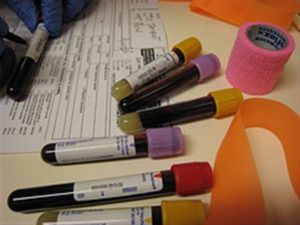
Hynes was pulled over for weaving. The Cherokee Deputy initiated a traffic stop. He smelled a heavy odor of alcohol. Hynes admitted to drinking two glasses of wine. Hynes refused to participate in DUI field sobriety tests. The Deputy persisted and Hynes completed the Horizontal Gaze Nystagmus test indicating 6 of 6 clues. Hynes was arrested for DUI. The Deputy read the Georgia Implied Consent rights. Hynes stated that he would take an independent test instead of responding yes or no. The Deputy deemed that response a refusal and sought a warrant for Hynes’ blood from a Magistrate Judge.
Hynes argued that his right to an independent test under O.C.G.A. 40-6-392(a)(3) is not contingent upon submission to a state-administered test under Georgia Implied Consent rights. The State argued that the right to an independent test under OCGA 40-6-392(a)(3) and (4) and in the implied consent rights quoted in OCGA 40-5-67.1 required submission to a state test before the right to an independent test accrues.
OCGA 40-6-392(a)(3) provides,
The person tested may have a physician or a qualified technician, chemist, registered nurse, or another qualified person of his choosing administer a chemical test or tests in addition to any administered at the direction of a law enforcement officer. The justifiable failure or inability to obtain an additional test shall not preclude the admission of evidence relating to the test or tests taken at the direction of a law enforcement officer; and…
The Court of Appeals began its analysis by citing Williams v. State, 296 Ga. 817 (2015) for the proposition that all state tests must be obtained with a warrant or with consent. Implied Consent is based on the consent exception to the 4th Amendment’s warrant requirement.
The Court of Appeals determined that the Implied Rights provide an incentive to submit to the test designated by law enforcement by offering an additional independent test. Therefore, a test obtained by warrant would not trigger the right to an additional independent test by the driver. The additional independent test provided for in the implied consent rights is not a right but rather “a matter of grace bestowed by the Georgia Legislature.” See, Padidham v. State, 291 GA. 99 (2012).
The Court of Appeals found that a test obtained by a warrant is a test at the direction of a “judicial officer” and not a “law enforcement officer” as expressly stated in OCGA 40-6-392(a)(3).
The Court of Appeals rejected arguments that Police would seek warrants and skip implied consent rights to eliminate the Driver’s right to an additional, independent test as too time-consuming. The Court reasoned that Police Officers would try the Implied Consent first. Further, the Court rejected the argument that a Defendant has to waive his 4th Amendment rights and consent to a state-administered test to obtain an additional independent test.
The Court of Appeals affirmed the Trial Court’s denial of the motion to suppress holding that no right to an independent additional test accrues until the Drivers submits to the designated State Administered Test in the Georgia Implied Consent rights.
There are two problems with this opinion. First, the reality of the situation is that almost universally and with very few exceptions hospitals and blood drawers are employed by private companies that require patient consent for blood to be drawn even in the presence of a warrant ordering the same. In many counties, if you do not consent to a blood or breath test after a warrant, law enforcement officers will charge you with obstruction for willfully resisting the lawful order of a law enforcement officer. Therefore, the Georgia Implied Consent rights provide that, “After first submitting to the required state tests, you are entitled to additional chemical tests of your blood, breath, urine, or other bodily substances at your own expense and from qualified personnel of your choosing, ” is misleading. What is the difference between submitting to a required state test under implied consent and a warrant? Also if OCGA 16-10-24 provides for obstruction of a law enforcement officer in the lawful discharge of his duties and not a judicial officer. Failing to submit to a test with a warrant would be criminal contempt and not obstruction since a test ordered in a warrant is by a judicial officer and not by a law enforcement officer.
Secondly, the Court of Appeals cited South Dakota v. Neville, 459 U. S. 553, 560 (II) (103 Sgt 916, 74 LEd2d 748) (1983) for the proposition that “the admission into evidence of a defendant’s refusal to submit to [a blood-alcohol test] does not offend the right against self-incrimination.” However, the Neville Court premised it’s finding that evidence of a refusal is not incriminating in response to a lawful or legitimate request by law enforcement. Id at 564 (” We hold, therefore, that a refusal to take a blood-alcohol test, after a police officer has lawfully requested it, is not an act coerced by the officer, and thus is not protected by the privilege against self-incrimination.”) However, the Georgia Implied Consent rights are neither lawful nor legitimate because they are false. First, Georgia law does not require you to submit to testing as the Georgia Constitutional protects you from incriminating acts and words. As such blowing into a breath device is an incriminating act protected by the Georgia Constitution. See generally, Creamer v. State, 229 Ga. 511, 192 S.E.2d 350 (1972); Aldrich v. State, 220 Ga. 132, 137 S.E.2d 463 (1964). Further, if you refuse your license will not necessarily be suspended for one year as the express state in the Georgia Implied Consent rights.
This is the nature of legal opinions. Inevitably new appellate opinions create more questions than they answer.
-Author: George Creal

